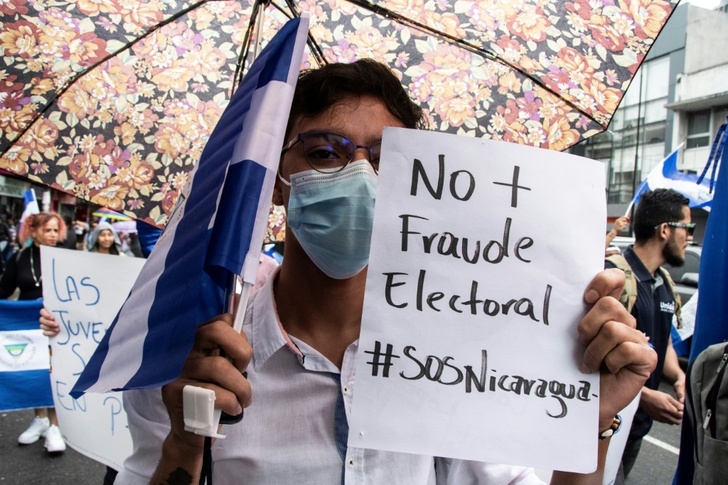Nicaragua is systematically working to stifle dissent, the UN's rights chief warned Thursday, pointing to swelling numbers of arbitrary detentions, thousands of NGOs shut down and "muzzling of the media".
Volker Turk told the United Nations Human Rights Council the country was beset by an intensifying "climate of oppression", an update that was harshly criticised by Nicaragua and its allies.
There is, he warned, "a systematised effort to stifle opposition and dissent".
Nicaraguan President Daniel Ortega's leftist government has faced mounting diplomatic pressure over what the United States has called a dramatic deterioration of human rights. That has included the jailing of dozens of political opponents, students and journalists.
"The number of people arbitrarily detained for expressing their political views or for being perceived as critics of the government went up from 195 in September to 225 today," Turk told the council.
"This includes relatives of detained political opponents, allegedly to coerce the latter into surrendering," he said.
The UN rights chief also voiced alarm that over 3,000 national and international NGOs had been shut down -- nearly half of them since September.
And he accused the government of "muzzling of the media", after it shuttered 26 national media outlets and three international ones.
- 'Arrested, harassed, intimidated' -
"Human rights defenders, journalists, clergy or those perceived to be political opponents, are arrested, harassed, intimidated," Turk said.
In particular, he warned the municipal elections in Nicaragua last month "had the trappings of an exercise in autocracy".
He pointed to waves of arrests, dismissals of political opponents and widespread intimidation on election day.
Turk called on the authorities to release all those arbitrarily arrested and to fully respect fundamental freedoms of expression, association and assembly.
He asked that his staff be granted access to the country.
A range of diplomats at Thursday's meeting, including many of Nicaragua's neighbours, echoed Turk's concern. Ecuador's representative Alejandro Davalos describing the situation as "a source of deep alarm".
US ambassador Michele Taylor voiced "great concern," urging "the regime to cease its assault on peaceful opposition, independent media, academia, human right defenders, journalists and religious actors".
Her use of the word "regime" sparked immediate protest from Nicaragua's representative in the room.
Nicaragua's Attorney General Wendy Morales Urbina denounced Turk's presentation and the "manipulative and biased position" of the UN rights office towards her country.
A number of countries, including Russia, Venezuela, North Korea and Cuba, also jumped to Nicaragua's defence.
They echoed the words of the Chinese representative Zhang Xiaoyue, who criticised the "politicisation and instrumentalisation of human rights issue... to interfere in the internal affairs of other countries".
nl/rjm/jj
© Agence France-Presse
Your content is great. However, if any of the content contained herein violates any rights of yours, including those of copyright, please contact us immediately by e-mail at media[@]kissrpr.com.
Source: Story.KISSPR.com

